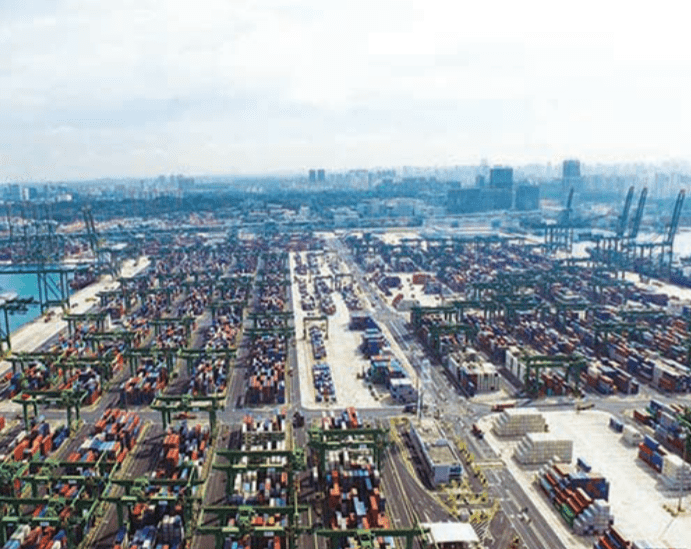
Global container port congestion is now around 9 million TEU, close to the peak of 9.6 million TEU seen during the Covid-19 pandemic, according to a Clarksons report.
The world’s largest shipbroker said in a report that the Red Sea crisis, which has seen container vessels detouring round the Cape of Good Hope, has added circa 12% to TEU-mile demand.
Clarksons analyst Trevor Crowe wrote: “It has been a better than expected year so far for trade volumes – this has helped drive markets to exceptional levels once again.”
He noted that the rise in congestion has emerged from the impacts on port infrastructure and logistics of vessel re-routing, amplified by strong year-to-date global trade volumes, which have grown 8% year-on-year from January to April.
There has also been a psychological factor, as shippers anticipating tightening shipping and equipment availability during the 3Q peak season, have rushed to move their exports in May and June, causing the peak season to arrive early.
Knock-on impacts evolving from liner company service re-scheduling include equipment displacement bottlenecks.
Clarksons’ global containership port congestion index shows that the percentage of boxships waiting in port has gone up from 27.5% in late February to 31% in late June.
Crowe wrote: “Though this is well below the Covid-era highs of 37%, and disruption today is maybe not as pervasive through the whole network as back then, trends in the index need to be put into context. Liner service patterns have shifted significantly since late 2023, with re-routing over longer distances reducing the ‘normal’ share of time/capacity in port (meanwhile total containership fleet capacity is up 19% versus start of 2022).”
A reasonable estimate could be that congestion is currently tying up 3% to 4% of the fleet, compared with 6% to 7% during the pandemic.
EconDB’s data shows that at the port of Singapore, the busiest container port in the world, 61% of calls have been delayed over the past week. Transshipped and outbound containers have a dwell time of around 10 days.
Concerned with the situation, Singapore’s Transport Minister Chee Hong Tat said the Maritime and Port Authority of Singapore and port operator PSA are working with liner operators to have their ships refuelled and restocked while waiting to berth.
Martina Li
Asia Correspondent
Sources: Container News
 Hotline: 0944 284 082
Hotline: 0944 284 082
 Email:
Email: 


 VN
VN